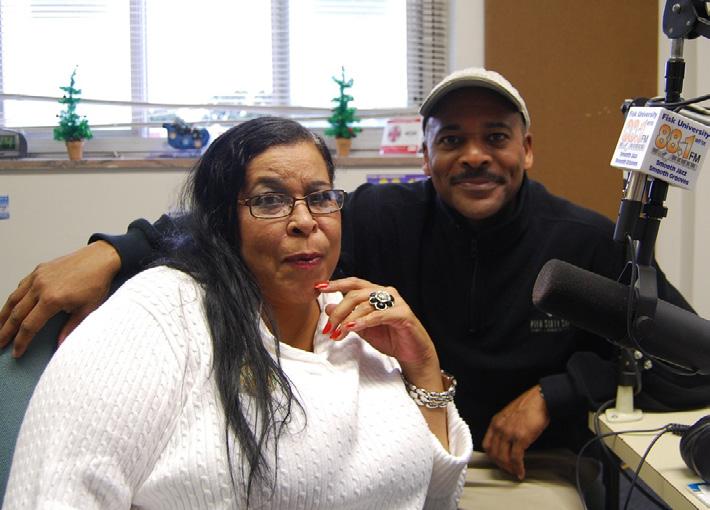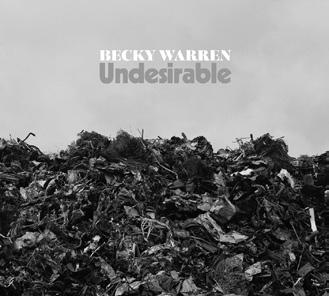
3 minute read
Moving Pictures
The Witch of Kings Cross Profiles Australian art and feminism pioneer Rosaleen Norton
BY JOE NOLAN, FILM CRITIC
A tagline on the website of Director Sonia Bible’s new Rosaleen Norton documentary labels Norton a “Scandalous Notorious Genius.”
The film opens with a montage of period footage and images of the real Rosaleen Norton cut-together with a dramatized occult ritual shot in black and white and featuring a half-naked actress standing-in for Rosaleen.
Bible’s mixing of contemporaneous footage, new interviews with Norton’s surviving friends and creative peers, and re-enactments isn’t exactly revolutionary, but it really works for her subject: The footage and interviews are full of eye-witness revelations about Norton, her beliefs and her art; and the sexy, kitschy dramatizations speak to both Norton’s DIY creative work ethic and her self-conscious understanding about how to titillate and shock audiences with outrageous images and behavior.
Norton was granted her first solo exhibition at Rowden White Gallery in the library of Melbourne University in 1949. Within a few days the police shut the show down and charged Norton with displaying obscene imagery. The press were drawn to the story and Norton made herself into an instantly infamous celebrity who explained her pagan philosophy and defended her art as expressions of the spirits that visited her in her trances. She explained the symbolism in her works, but didn’t apologize for its sexual content, and when she went to trial she won her case.
Norton lived in the Kings Cross neighborhood in Sydney. Kings Cross was a red light district as well as a place that attracted actors, artists, musicians, mad geniuses and bohemian eccentrics of all stripes. After her Melbourne exhibition Norton was alternately celebrated and reviled as The Witch of Kings Cross for the rest of her life. “All our time was spent working and drinking,” Norton is quoted in voice over. “Also begging, borrowing, stealing and occasionally buying food.”
Norton worked as an artist’s model while developing her trance-inducing techniques with incense, darkness, wine and her vivid imagination. She struck-up a relationship with a brilliant gay poet named Gavin Greenlees. Homosexuality and witchcraft were both illegal in Australia and the pair were bonded in their mutual creative and spiritual pursuits as well as in their statuses as social outlaws.
Norton and Greenlees found opportunities to display and publish their work, but their cupboards were often bare aside from the endless cups of tea Norton poured for guests. Their apartment building was known for illegal liquor sales, orgies, violent lovers’ spats, and under-the-table gambling. Norton and her neighbors were regularly harassed by police and charged with vagrancy violations — the crime of not having enough money to support yourself. But what Norton didn’t have in exterior comforts, she made up for in nurturing her rich interior life on a steady diet of mythology, Jewish mysticism, astrology, and theosophical methods and philosophies.
Norton advocated a radical individuality informed by an occult practice steeped in non-traditional sexuality and expressed in shockingly graphic imagery. In hindsight it’s not surprising that Australia’s conservative Christian culture in the 1950s was more than a little provoked by the artist and her entourage. Norton’s books were censored. Her exhibited works were seized and literally burned by authorities. But what if Norton had emerged a dozen or fifteen years later after youth culture took over the world? The artist and witch’s visionary gift was almost a generation ahead of itself, and even though she was somewhat neglected and dismissed in her own time we can now see echoes of Rosaleen Norton throughout popular culture and contemporary art, but also in various strains of feminism and in society’s shifting perceptions of sexual orientation and expression. Norton died isolated and impoverished in 1979 with no reason to believe that her work would live long after her passing.
The Witch of Kings Cross is streaming on Amazon, iTunes, Vimeo and GooglePlay.
Joe Nolan is a critic, columnist and performing singer/songwriter based in East Nashville. Find out more about his projects at www.joenolan.com.








